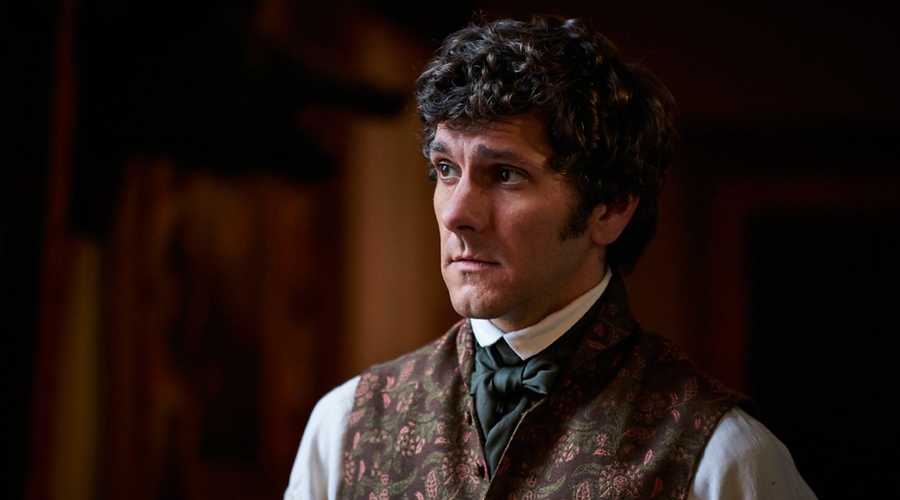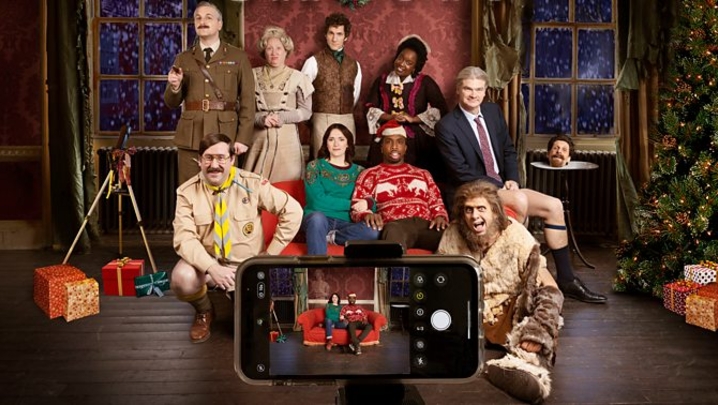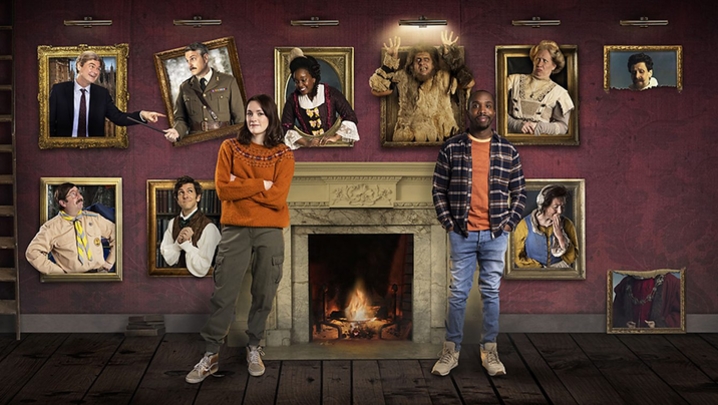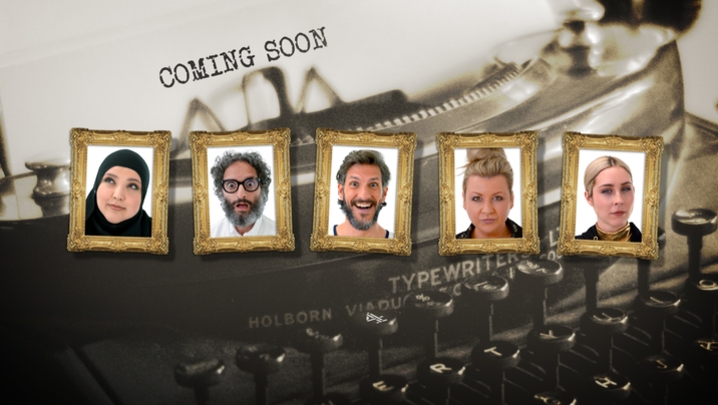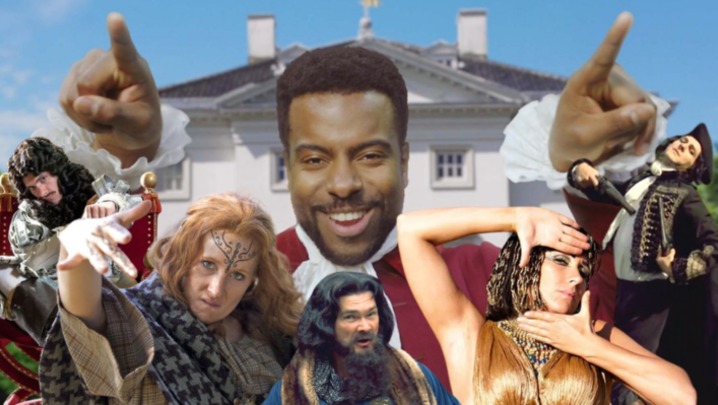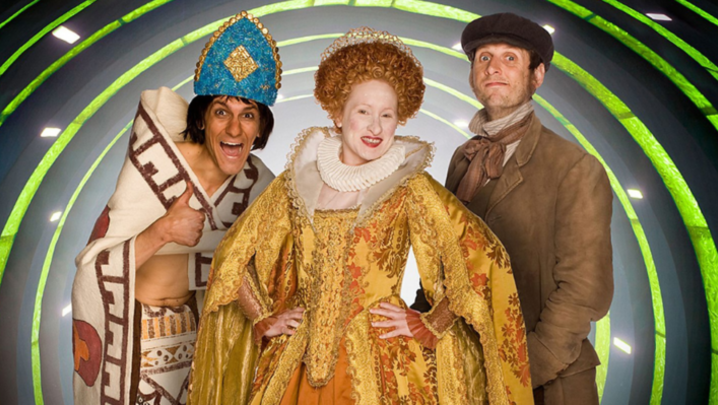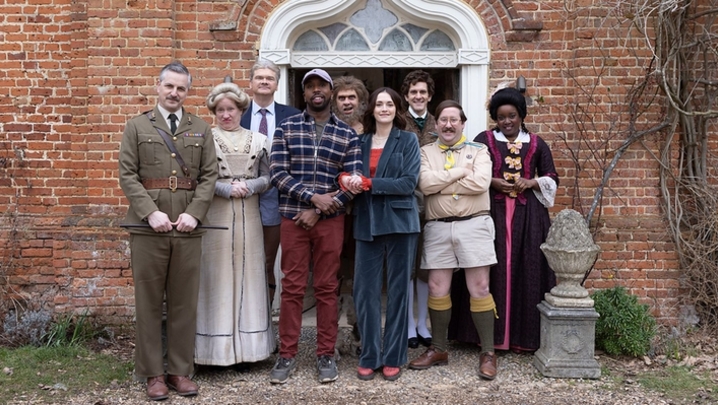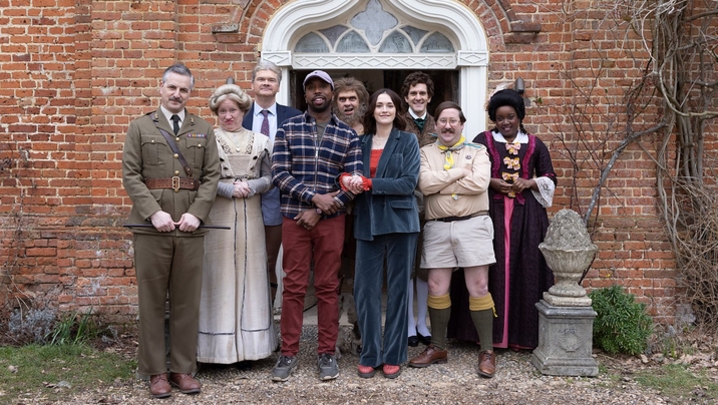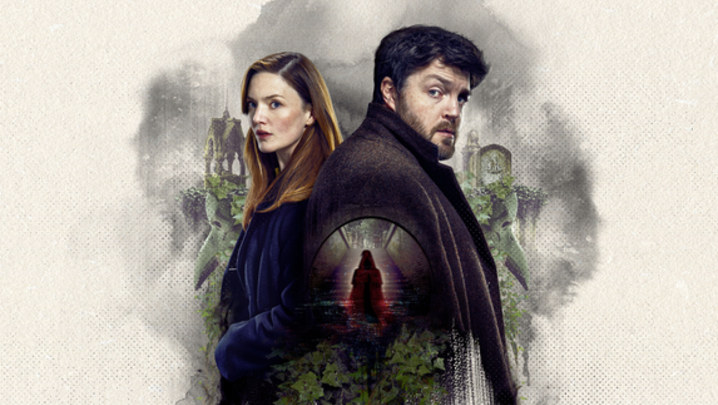Actor Mathew Baynton says he is aware of the stereotype, but the truth is that he was an attention seeking child whose most formative memory was “being jealous and aggrieved that I didn't get a proper role in the Nativity.”
If only the director could see their Narrator Three now. The snub marked the beginning of Baynton’s steady rise to Brit-com stardom, from comic turns like the innocent but inane Deano in Gavin and Stacey (2008-2010), to creating and starring in several dearly beloved sitcoms, the most recent being BBC One’s Ghosts (2019-).
After spending his school years playing the class clown, he attended Rose Bruford drama school to study directing. But by then he was in what he refers to as his “self-serious artistic phase”, off comedy and onto physical theatre.
Halfway through his course, however, he relocated his funny bones through exposure to fringe physical comedy shows and wound up under the wing of Cal McCrystal, the Irish theatre director (widely regarded as one of Britain’s funniest). It was McCrystal who persuaded Baynton to perform, “a wonderful dream” that he says he hadn’t even considered going near because “it would be so disappointing if you found out you weren’t good enough.”
Having completed his degree, he embarked on a pilgrimage to Paris, enrolling in the world renowned clown guru Philippe Gaulier’s school to “tap straight into the source.” There, the focus was less on technique and more on philosophy, the golden rule being, he recalls, that “the thing you want to watch in the performer is their pleasure. They have to seem like they’re having the best fun in the world.”
It is an ethos that Baynton has clearly adopted and maintained, bringing a palpable sense of fun to both major and minor roles. Although he recognises that it’s a job that’s hard not to enjoy: “most of my professional career has been doing comedy and being with like-minded, silly people trying to make each other laugh... It’s a disgusting privilege.”
Among these “like minds” are the five other members of the Horrible Histories (2009-2013) troupe (Simon Farnaby, Martha Howe-Douglas, Jim Howick, Laurence Rickard, and Ben Willbond), with whom Mathew Baynton has written and performed alongside ever since the sketch show first aired on CBBC. Branded ‘The Six Idiots’ by stans, their signature silly-but-smart slapstick has made for some of the most age-inclusive sitcoms in recent times.
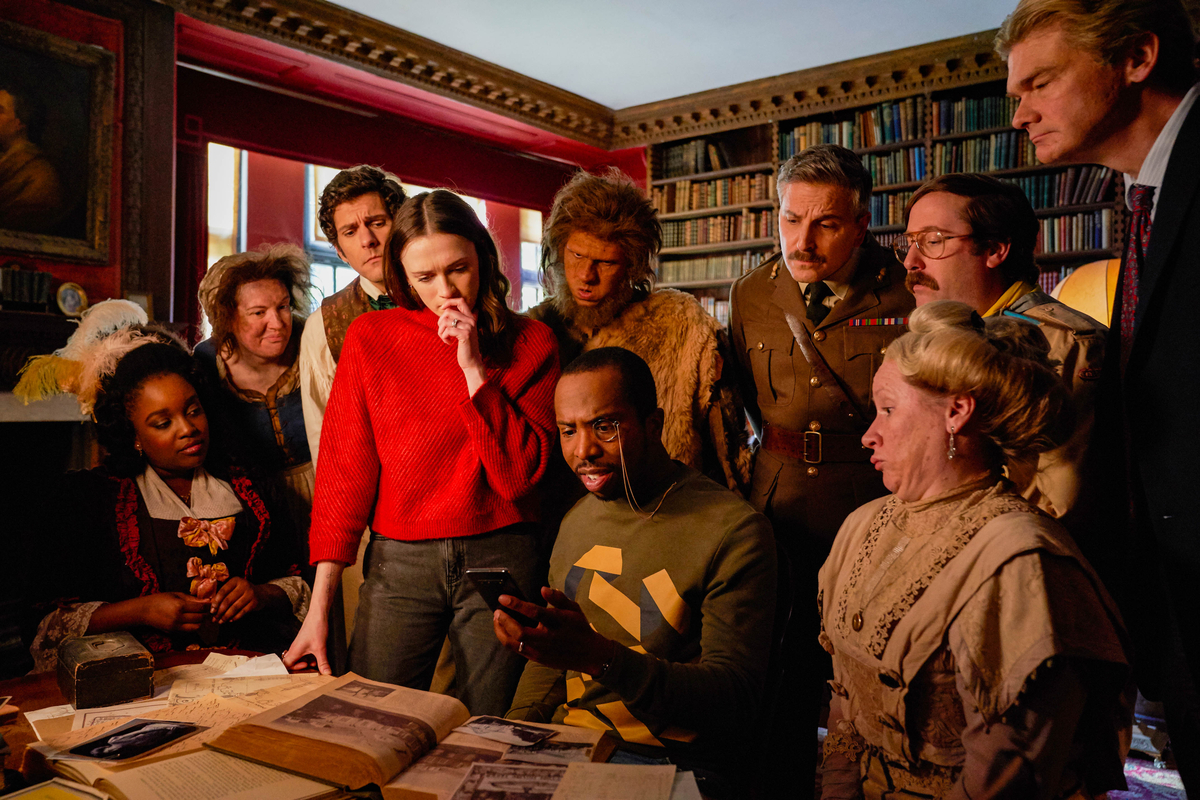
In 2019, Ghosts picked up from where Horrible Histories (and later, Sky One’s madcap puppet comedy Yonderland 2013-2016) left off. Now in its third series, the haunted house share sitcom is a hit by any metric, with three RTS Award nominations among its accolades.
Ghosts tells the story of a young married couple, Alison (Charlotte Ritchie) and Mike (Kiell Smith-Bynoe), who unexpectedly inherit a dilapidated stately home, much to the dismay of its ghostly inhabitants (played by the troupe plus Lolly Adefope and Katy Wix).
It was originally conceived and pitched as a post-watershed comedy, a first for the ensemble, but Baynton insists that their approach to making the series was no different to their previous projects. “There is no second guessing an audience of any age,” he says. “Do we think it’s good? That’s the quality control.”
“What we were chasing really was the comedy we grew up with,” he says, referencing Blackadder and Monty Python reruns, and other series which may have aired after 9.00pm but stood firmly in the grey area between family friendly and adult. He and his fellow writers all fondly remembered seeking the thrill of their mature themes, and hoped kids would get the same kick out of Ghosts.
They initially binned the idea, however, having struggled to brainstorm storylines due primarily to the fact that the spirit world is “literally intangible,” rendering the material world and its usual concerns off limits: unlike most house shares, there is no rent to pay. But the solution, says Baynton, was to “lean into what we thought was the problem: it's the fact that they're stuck there, with nothing meaningful to do but fill their time.”
“That felt to me like thrillingly metaphorical and existential. It was like: ‘oh, this is actually about being alive. We're here, none of us can agree even why we're here, and we can't even work out what to do with our time.’”
And so it became a series about boredom and petty grievances, as the ghosts try desperately to break up the monotony of the afterlife: among them are former scout leader Pat Butcher (Howick) hosting his many clubs, Lady Fanny Button (Howe-Douglas) enlisting herself as an etiquette vigilante, and caveman Robin (Rickard) thrashing Julian Fawcett MP (Farnaby) at chess. Baynton’s Thomas Thorne, a failed Regency era poet and hopeless romantic, nonetheless continues writing his poetry and pining for Alison.
When it came to allocating the parts, Baynton says that by now the troupe know each other too well to allow anyone to go against type. Not that the faithful follower of Gaulier would, though. He recalls another lesson he learned under his tutelage, that “clowning is being honest with yourself about the thing that people laugh at in you,” and being an artist prone to self-seriousness, playing the ghost of a poet convinced of his own genius presents him with “an opportunity to send up that side of myself.”
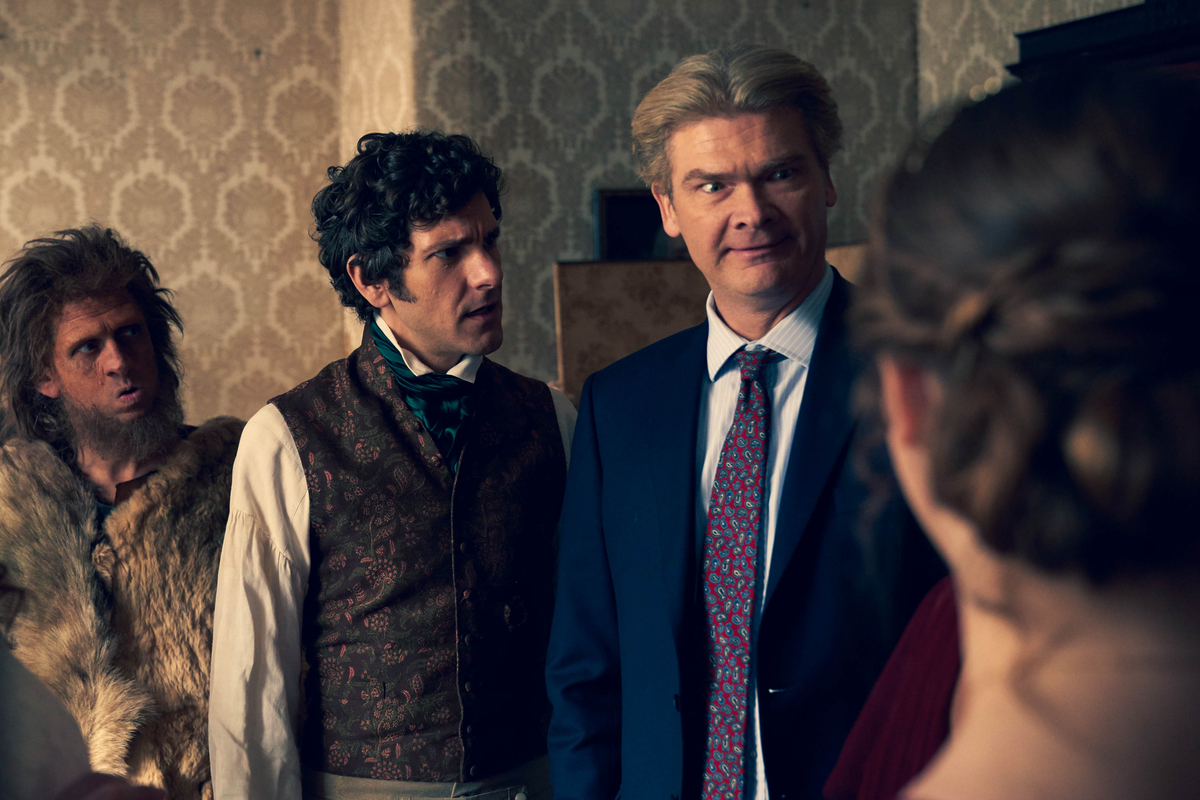
Filling Button House with characters from disparate eras was first and foremost a storytelling device; their vast cultural differences making for antagonisms so extreme that they provide endless fuel for drama. “In a modern house share sitcom, you can have the slob and the fastidiously tidy one, but in ours you can stretch that to the Nth degree. The slob actually is a caveman, and the fastidious one a starchy Edwardian matriarch.”
Landing in politically polarized, post-Brexit Britain, the series became a timely parable of empathy and understanding. “It went from being about how hell is other people... to about how people can get on. They're never going to fully change or embrace each other's ideologies, but if they're together, they'll find a way because they have to.”
“Of course, they don't get the sweet release of death that the rest of us can hope for, so probably they have to find a way. Whereas if you really want to, you can hate everyone until you die here on Earth,” he laughs.
As for the future of Ghosts, he contrasts the series with Yonderland, which ran for three series, in that “we felt another would be a repetition of the same formula, whereas this feels like a story we’re still telling.”
“On its most basic level, we haven't divulged all of the backstories yet and we want to do that. But there's their whole lives to explore, not just their deaths.” As they do in flashback episodes this series like Something to Share (episode five), which sees Kitty delve into her life before death as Alison attempts to drive home her sister’s true, evil character.
What about Thomas? Will he ever get with Alison? “Of course not. The only person in the universe who wants that is Thomas.”
Ghosts series three currently airs weekly on BBC One on Monday at 8.30pm.

